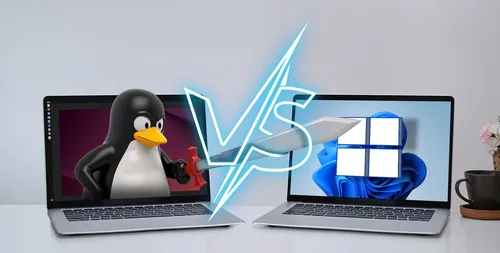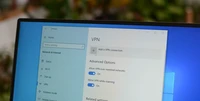Windows and Linux: What's the difference for everyday users?

Usually, Linux distributions are not designed for profit.
The biggest difference between two OSs may be their underlying philosophy. Windows is a product created by Microsoft and sold for money. When you buy a new laptop, some of the purchase cost goes to Microsoft, making it possible to use Windows. Therefore, decisions made by Windows often prioritize profits and can conflict with user needs.
Linux is essentially free in most cases. Exceptions exist, but particularly for enterprise applications, this is not the case. As a general consumer, you do not need to pay to use Linux. This is true even if the selected distribution was created by major companies. For example, the popular Ubuntu distribution, which Canonical, a profit-seeking company, creates, is free.
Without greedy entities, Linux designers can make choices considering users' interests without being bothered by sales routines or advertising space issues. Microsoft operates by selling subscriptions and advertisements, designing Windows for this purpose.
Who is "Linux?"
Rucas Guvera / Technology FighterAnother important point to recognize about Linux is that it does not have a single, unified OS like Windows. Windows has a version of the operating system for each device, while Linux offers various distributions tailored to different needs.
Linux lacks professional customer support, so you need to know how your computer works. Instead, you rely on online documentation and websites. This means that when problems occur, you can find solutions using self-help documentation and people in the Linux community.
"The entire Linux community is very friendly and supportive, but there's no guarantee that someone will help with a specific issue. I resolved many of the problems I encountered while using Linux with kind advice, my knowledge, and simply trying things out. It was elegant but not efficient sometimes, and at times I wished for a Windows-style 'plug-and-play'."
Not everything works on Linux
Another issue to note is that many software programs are optimized for Windows and may not work on Linux. While there are versions of most software available for Linux (and new ones are added daily), some do not work. Examples include Adobe product installation packages and many games.
Typically, you can avoid these issues by using emulator software, but problems occasionally arise. A good example is Steam's Proton compatibility layer, which allows you to play Windows games on Linux. In my experience, it works well most of the time, but some games still cannot be played due to certain reasons.
"This is not a decisive issue for me, but if you depend on specific software or are an intense gamer, you should consider carefully when switching to Linux."
Linux lets you do anything you want on your PC
Rucas Guvera / How Geek | Rionoadai ILinux gives you freedom in how you use your PC, with the only limit being your patience and the distribution you choose. If you want to give new life to an old laptop, try using a lightweight distribution. For video editing, there are also distributions tailored for that purpose.
The downside of Linux's freedom is that not everything works, and it may take time to understand how certain things function. I think this is worth it. I don't need to give my money to big companies. And I enjoy experimenting until I understand how something functions. If you feel good about it, try switching to Linux.
カテゴリー
最新記事
- 静かなキーストロークと高い生産性の向上を実現する、STEALTH KEYBOARD SM3 メカニカルキーボードのレビュー。
- その古い電話が目の前で火事の原因になった。
- アップル招待とアップルカレンダーの違い:10個のポイント
- アップル @ ワーク:2025年にアップルがGoogle Workspaceに対抗する製品をリリースするのか?
- Apple は iPhone SE 4 を発表する特別なイベントを開催する可能性が低い。
- 今日の NYT Connections ヒントと解答 (2 月 8 日 #608)
- Ubuntu 20.04 LTS のサポートが終了します。
- 読み込みが間に合わない? AI に読んでもらいたいですか?
- これは私が愛用する聖杯 ブルーレイプレーヤーです。
- 来週、新しい Apple 製品の発表が予定されています。詳細は下記の通りです。



